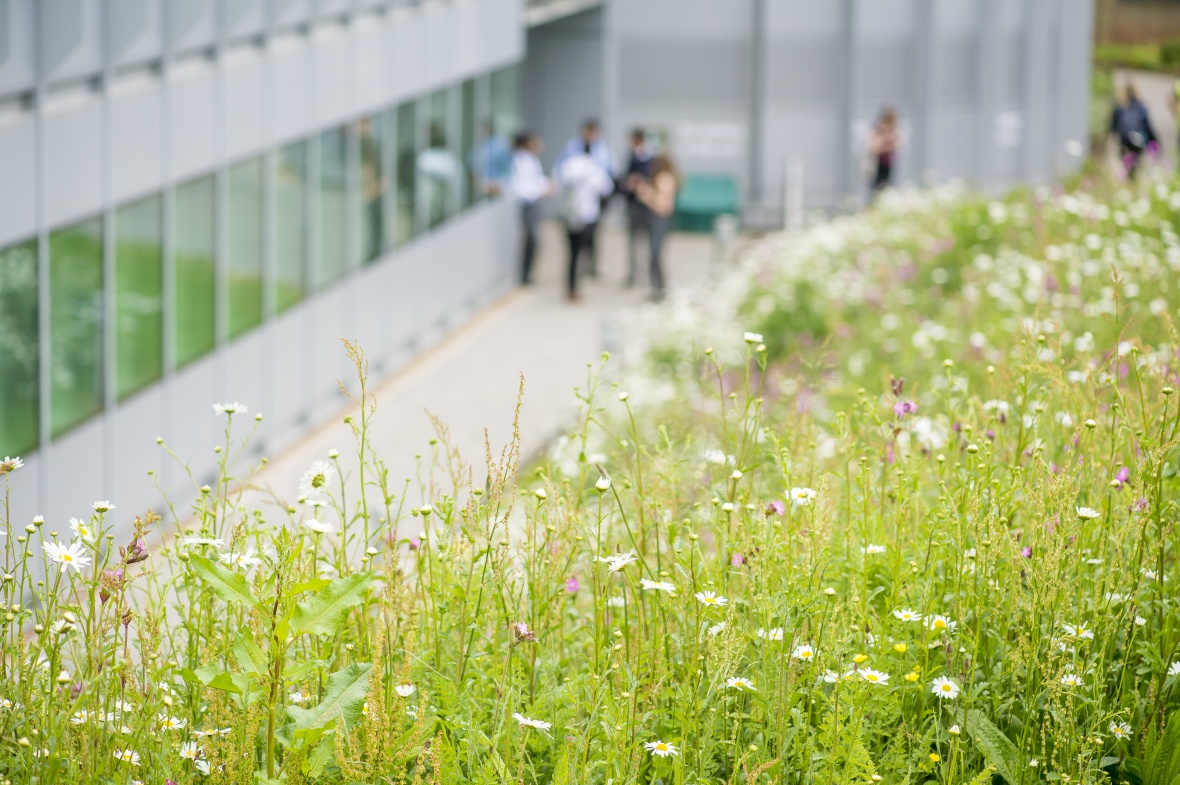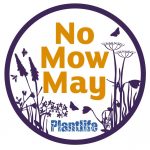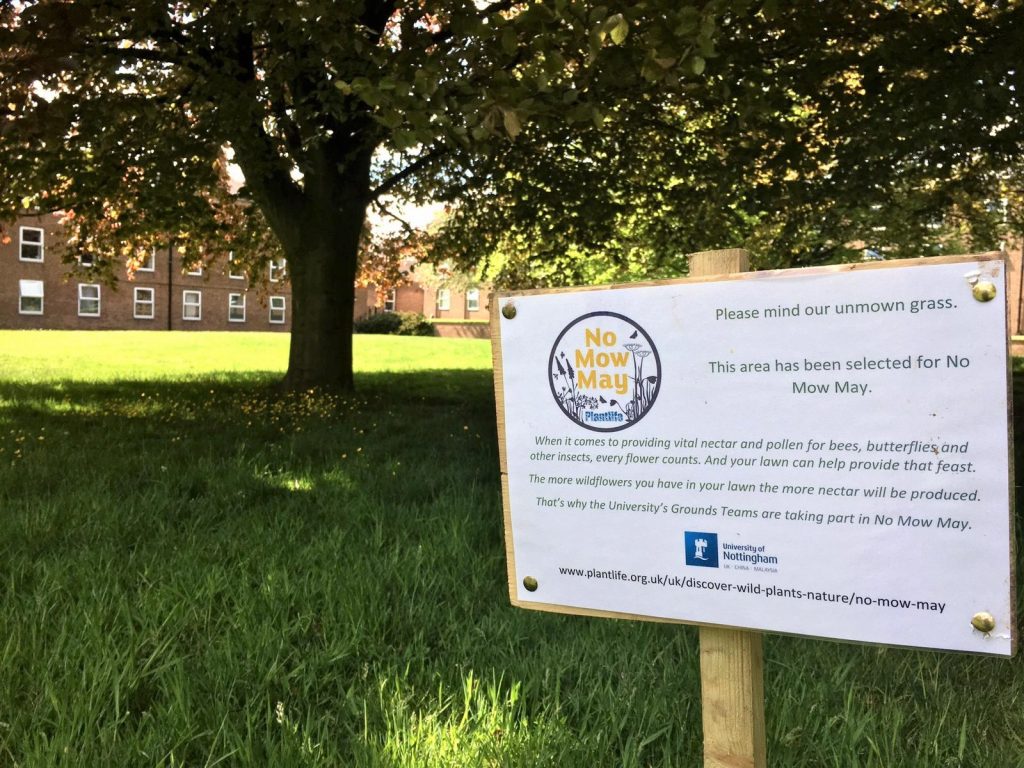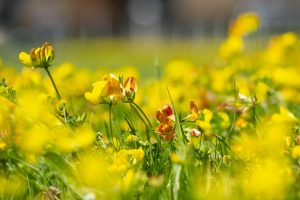
May 20, 2021, by sustainablenottingham
No Mow May – Biodiversity at the University of Nottingham
Our University campuses encourage biodiversity all year round, but during May, Nottingham has been taking part in #NoMowMay.
The loss of flower meadows in the UK over the past 90 years has led to a steep decline in bees and other pollinating insects. Gardens and green spaces have subsequently become an increasingly important habitat, especially when areas are left undisturbed.

The less that grass is mown, the more pollinators will return. Plantlife’s No Mow May campaign asks everyone to lock away lawn mowers and leave gardens and parks to bloom and go wild for a month.
Wild campuses
The University grounds team are supporting this biodiversity initiative across all our UK campuses. A variety of organic, environmentally-friendly gardening practices are already used, and grounds and gardens are actively managed to encourage biodiversity. Our campuses have numerous wild areas, where mowing has been reduced or stopped completely. Edges and margins are increasingly being widened and left to grow wilder.
New wild spaces have specifically been created for No Mow May, and if you are out and about on campus you may spot signs of some of them. This includes grounds near Derby Hall and a strip between Highfields Lake and Jubilee Avenue being left uncut. At Nightingale Hall, wildflower seed has been sown to encourage a mix of bees and butterflies.
Our staff are increasing aware of the importance and our commitment to sustainable maintenance practices, to positively support wildlife and conservation projects, and to maximise opportunities within the University’s Biodiversity Action Plan in the management of our wide range of habitats and green spaces. David Beadle, Landscape Manager
Throughout the year, more wild areas will be created, including near the Hemsley building and Teaching and Learning.
There are lots of other nature-based activities taking place throughout Spring. Read on to find out more.
Hedgehog friendly campuses
At the beginning of May, during Hedgehog Awareness Week, the UoN hedgehog friendly campus group carried out hedgehog surveys across University Park. You can read more about what this entails in this blog from 2020. This year they found evidence of hedgehogs in 4 out of the 10 locations they surveyed. Surveys will now begin at Sutton Bonington campus.
Jubilee wildflower trials

At Jubilee campus soil testing trials are underway to establish the best places to plant wildflowers. The plan is to create flowing wildflower marginal areas which merge to link the Jubilee Conference Centre to the Scout Field. Stay tuned for more info on this project.
Sutton Bonington trees
420 new whips (young trees) were planted across Sutton Bonington campus this month by a team of volunteers and the Sutton Bonington student Sustainability Society. There are also plans for 5,000 more trees to be planted within the onsite dairy farm before the end of the year.
University beehives
The University has around 60 beehives, each housing tens of thousands of honeybees, helping to increase biodiversity and pollination. The beehives are managed on the University’s behalf by a professional bee farmer, Parks Apiaries, with hives located at Bunny Park (arable farmland south of Nottingham used for University research) and King’s Meadow Campus in Lenton. The bees have been busy making honey, jars of which will be on sale again soon.
What you can do
- No Mow May is nearly at an end and it’s soon time to start the Every Flower Counts survey to see how many flowers have benefitted from being left alone, and in turn, the number of bees they can support. We are looking for help to survey the No Mow May areas on campus. If you can spare an hour over the coming weeks and want to help, get in touch with us.
- If you missed taking part in #NoMowMay in your own garden this month, it’s not too late to change your mowing habits to benefit wildlife. Or why not take part in #LetItBloomJune and #KneeHighJuly.

- Read more about other simple changes you can make to have a more wildlife friendly garden.
- Take part in the UoN Hedgehog Friendly Campus garden competition. There are prizes up for grabs for the most hedgehog friendly garden or innovations.
No comments yet, fill out a comment to be the first

Leave a Reply